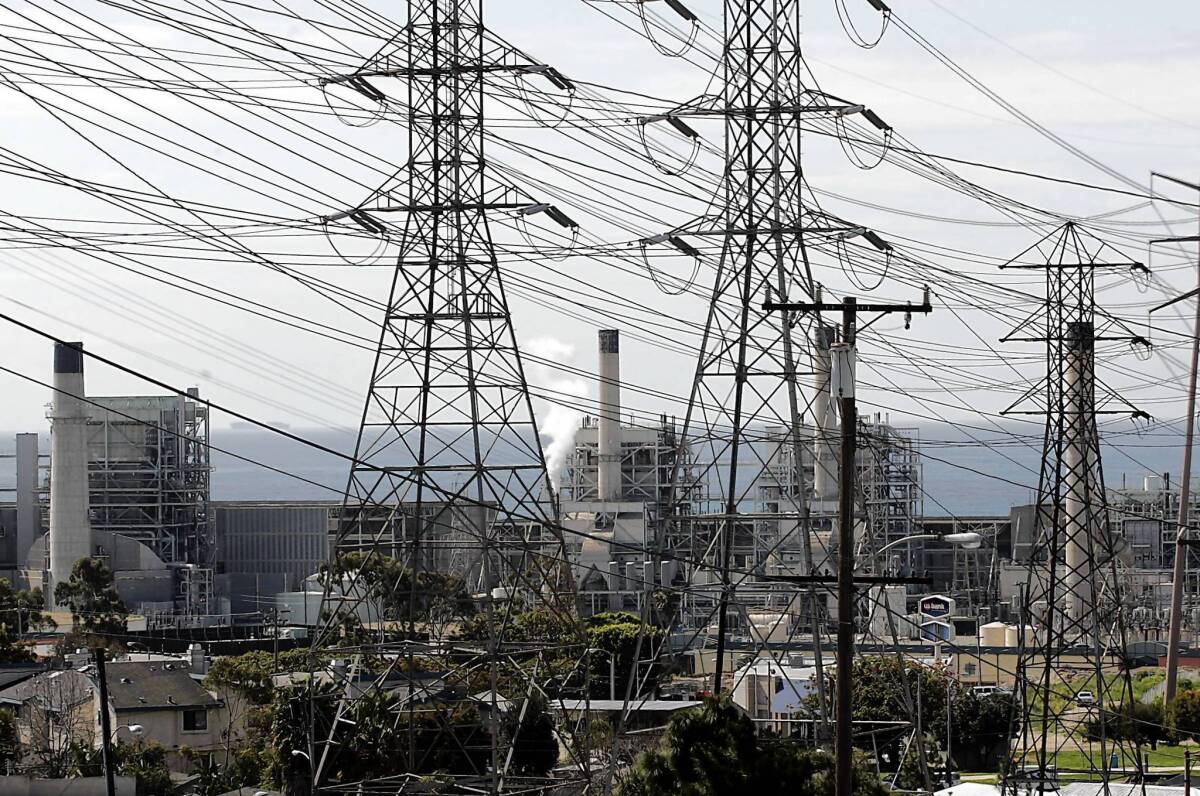In L.A. County elections, some cities see power shift

While contests at Los Angeles City Hall drew the spotlight in Tuesday’s election, 29 other cities across the county held elections of their own — some mundane, some controversial, and some still undecided.
In blue-collar Cudahy, where three former city officials were recently sentenced for shaking down the owner of a marijuana dispensary, the election ushered in three new council members, Chris Garcia, Jack Guerrero and Baru Sanchez, and hopes of change in a city tagged with a reputation for corruption.
“It’s going to be a new and improved Cudahy,” said Susie De Santiago, 47, a longtime resident.
In nearby Bell, incumbent Ana Maria Quintana appeared to have retained her seat by a wide margin while another sitting council member, Danny Harber, trailed school dean Alicia Romero by just four votes. Harber and Quintana were elected to the board as reformists after most of the former council members were arrested on corruption charges in 2010. A jury is now deliberating their fate.
And in Huntington Park, where some residents mounted an unsuccessful attempt to recall the entire council last year, incumbents Andy Molina and Elba Guerrero were trailing newcomers Valentin Amezquita and Karina Macias, though several hundred provisional and mail-in ballots remained uncounted.
Other elections brought change under less dramatic circumstances. In Pasadena, incumbent council members Victor Gordo and Terry Tornek were reelected and Los Angeles Urban League executive John J. Kennedy won a seat. In a race for three seats in Beverly Hills, incumbents John Mirisch and William Warren Brien and former Councilwoman Nancy Krasne were leading.
Ballot measures in Redondo Beach and Carson, one aimed at shutting down a power plant and the other at ousting the city’s longtime mayor, respectively, were both losing.
Redondo Beach’s Measure A would have rezoned the 50-acre site of the gas-fired AES Redondo Beach plant to primarily open space or parkland and would have required the plant to shut down by the end of 2020. It also would have thrown a likely roadblock in the way of AES’ plans to build a new plant to comply with state regulations on the use of ocean water for cooling.
The measure was losing by only 383 votes Wednesday and 1,600 provisional and vote-by-mail ballots remained to be counted.
Proponents of the measure say the new plant would cause more pollution, that other commercial uses of the land would bring more tax revenue and that the plant is not needed to support the region’s energy grid.
“This is still the worst place for a new power plant on the entire California coast,” said Bill Brand, the lone City Council member who backed the measure.
Opponents, including AES, which spent heavily to defeat it, said the measure would trample on private property rights and probably lead to litigation.
AES Southland President Eric Pendergraft said the new plant would be more efficient and its power would support the development of renewable energy and potentially help replace the power from the shuttered San Onofre nuclear plant if the facility does not return to service.
In Carson, Measure M would have switched the mayor’s seat from a directly elected post to one appointed by the council on a rotating basis.
The initiative, supported by three council members, could have ousted Mayor Jim Dear, who also fought off a challenge in the election from Councilwoman Lula Davis-Holmes. With all precincts and vote-by-mail ballots counted Wednesday, the measure was losing by a dramatic margin — 83.2% to 16.8%.
Dear drew fire from residents and a rebuke from the Los Angeles County district attorney in recent years over his use of a mute button to silence unruly public speakers — or, some said, those critical of him — during council meetings. He survived a recall election in 2008 launched by residents who said he was too cozy with developers.
The mayor called the measure’s defeat and his reelection “a mandate for growth and progress and job creation and improvement in the city.”
“Measure M was a distraction and an attempt to confuse the voters,” he said.
The election also saw the balance of power shift back to Dear on the council with the election of Albert Robles, an attorney who has defended politicians in some high-profile corruption cases — including a former South Gate city treasurer also named Albert Robles and former Lynwood Councilman Fernando Pedroza — and mounted an unsuccessful challenge to former Dist. Atty. Steve Cooley in 2008.
Times staff writer Jason Song contributed to this report.
More to Read
Sign up for Essential California
The most important California stories and recommendations in your inbox every morning.
You may occasionally receive promotional content from the Los Angeles Times.












